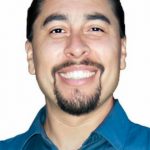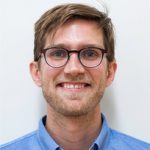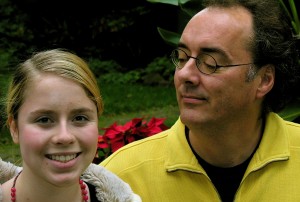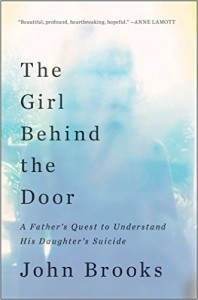by Rona | Nov 26, 2017 | Announcements, Appearances, KPFA, Podcasts, Radio Shows

Listen now to our show from 11/27/17, on KPFA.org 94.1FM
Being unhoused makes it difficult, and in some cases impossible, to access general health services. Poor health, addiction, mental illness, and violence are some things that lead to homelessness, and homelessness can make all of these things worse.
The majority of adults that experience homelessness have more than one health issue. They range from hypertension and diabetes to HIV and viral hepatitis, but the most significant reasons people go to emergency-rooms are mental illness and addiction. The sick and vulnerable become homeless, and the homeless become sicker and more vulnerable.
Guests:
 Alejandro Soto-Vigil comes from a family of activists in the Bay Area. Last year he was re-elected to his second term on the Berkeley Rent Stabilization Board. After 8 years working in the City of Berkeley as a legislative aide, Alejandro now serves as the program manager for the Berkeley Drop-In Center, an organization that has served Berkeley’s homeless residents for over 25 years. Alejandro majored in political sciences at UC Berkeley.
Alejandro Soto-Vigil comes from a family of activists in the Bay Area. Last year he was re-elected to his second term on the Berkeley Rent Stabilization Board. After 8 years working in the City of Berkeley as a legislative aide, Alejandro now serves as the program manager for the Berkeley Drop-In Center, an organization that has served Berkeley’s homeless residents for over 25 years. Alejandro majored in political sciences at UC Berkeley.
 Jeffrey Seal is the medical director and interim director of Alameda County Health Care for the Homeless, as well as an Assistant Clinical Professor in the UCSF Department of Psychiatry. He has worked at the Child Psychiatry Branch of the National Institute of Mental Health. He completed his medical degree at Boston University, a psychiatry residency at UCSF, and a chief residency at San Francisco General Hospital. He grew up on the Gulf Coast of Alabama, and currently lives in Oakland CA. He is a current California Health Care Foundation Leadership fellow and has special interests in public health systems, social determinants of health, re-entry populations, and trauma.
Jeffrey Seal is the medical director and interim director of Alameda County Health Care for the Homeless, as well as an Assistant Clinical Professor in the UCSF Department of Psychiatry. He has worked at the Child Psychiatry Branch of the National Institute of Mental Health. He completed his medical degree at Boston University, a psychiatry residency at UCSF, and a chief residency at San Francisco General Hospital. He grew up on the Gulf Coast of Alabama, and currently lives in Oakland CA. He is a current California Health Care Foundation Leadership fellow and has special interests in public health systems, social determinants of health, re-entry populations, and trauma.
by Rona | Mar 18, 2016 | Announcements, KPFA, Podcasts, Radio Shows
 In 2007, Janet Singer’s son Dan was diagnosed with OCD. “Hunched over with his head in his hands, he’d sit in his “safe” chair for hours, doing nothing but shaking, mumbling and moaning; he was in the throes of severe Obsessive-Compulsive Disorder.”
In 2007, Janet Singer’s son Dan was diagnosed with OCD. “Hunched over with his head in his hands, he’d sit in his “safe” chair for hours, doing nothing but shaking, mumbling and moaning; he was in the throes of severe Obsessive-Compulsive Disorder.”
“Overcoming OCD: A Journey to Recovery, is a mother’s account of the courage and perseverance of a young man who at times was hindered by the very people who were supposed to be helping him. It is a story of hope and the power of family, as well as a useful guide for all those whose lives have been touched by this often misunderstood and misrepresented disorder. Today, thanks to Exposure and Response Prevention (ERP) therapy, one of the available treatments for OCD, Dan is a college graduate working in his chosen field and living life to the fullest. He is living proof that even those with the most severe cases of OCD can not only recover, but triumph.”
Guests:
Michael Tompkins, is a licensed psychologist, co-director of the San Francisco Bay Area Center for Cognitive Therapy, and Assistant Clinical Professor at the University of California, Berkeley. Dr. Tompkins specializes in the treatment of obsessive-compulsive disorder and other obsessive-compulsive spectrum disorders in adults, adolescents, and children. He is the author or co-author of numerous articles and chapters on cognitive-behavior therapy and related topics, as well as seven books, including OCD: A Guide for the Newly Diagnosed. https://www.newharbinger.com/ocd
Janet Singer, is an advocate for OCD awareness. One of her goals is to spread the word that obsessive-compulsive disorder, no matter how severe, is treatable. She is the author of Overcoming OCD: A Journey to Recovery which recounts her family’s story. She writes regularly for PsychCentral and has been published on many other websites including Beyond OCD, Anxiety and Depression Association of America, and Mad in America. She has a blog, ocdtalk, which reaches readers all over the world. She uses a pseudo name to protect her son’s identity. https://www.goodreads.com/book/show/22524270-overcoming-ocd
by Rona | Feb 29, 2016 | Announcements, KPFA, Podcasts, Radio Shows
The Girl Behind the Door, A Father’s Quest to Understand His Daughter’s Suicide, by John Brooks, provides a profound look into adoption, teenage suicide, and attachment issues.
“When John and Erika’s daughter Casey jumped off of the Golden Gate Bridge in 2008, John began to unravel a heartbreaking truth—Casey had been in pain since birth, living in an Orphanage in Poland until she was adopted at 14 months.”
John spent many years after Casey’s suicide trying to understand what lead to her taking her life. He learned so much—the things he didn’t know, the mistakes he made, and the help he didn’t get from the professional community. He asks, “What did everyone miss? What could have been done differently?”
When you tune in to hear John’s story, you’ll understand more about the struggles children who are adopted face, and the heartache any parent feels when a child’s behavior is out of control, and challenging to understand.

Guests:
John Brooks, a former senior financial executive in the broadcast and media industry, has turned to writing, mental health activism, and volunteer work with teenagers in Marin County. He maintains a blog: parentingandattachment.com to share his experience and educate other adoptive families about parenting and therapy techniques unique to children with attachment disorders.
Nancy Newton Verrier, M.A., is a psychotherapist in private practice in Lafayette, CA, specializing in adoption issues. She is an internationally acclaimed lextureer on the effects of early childhood trauma and deprivation caused by the premature separation of mother and child. She is the author of, Coming Home to Self and The Primal Wound: Understanding the Adopted Child. http://nancyverrier.com/

 Alejandro Soto-Vigil comes from a family of activists in the Bay Area. Last year he was re-elected to his second term on the Berkeley Rent Stabilization Board. After 8 years working in the City of Berkeley as a legislative aide, Alejandro now serves as the program manager for the Berkeley Drop-In Center, an organization that has served Berkeley’s homeless residents for over 25 years. Alejandro majored in political sciences at UC Berkeley.
Alejandro Soto-Vigil comes from a family of activists in the Bay Area. Last year he was re-elected to his second term on the Berkeley Rent Stabilization Board. After 8 years working in the City of Berkeley as a legislative aide, Alejandro now serves as the program manager for the Berkeley Drop-In Center, an organization that has served Berkeley’s homeless residents for over 25 years. Alejandro majored in political sciences at UC Berkeley.  Jeffrey Seal is the medical director and interim director of Alameda County Health Care for the Homeless, as well as an Assistant Clinical Professor in the UCSF Department of Psychiatry. He has worked at the Child Psychiatry Branch of the National Institute of Mental Health. He completed his medical degree at Boston University, a psychiatry residency at UCSF, and a chief residency at San Francisco General Hospital. He grew up on the Gulf Coast of Alabama, and currently lives in Oakland CA. He is a current California Health Care Foundation Leadership fellow and has special interests in public health systems, social determinants of health, re-entry populations, and trauma.
Jeffrey Seal is the medical director and interim director of Alameda County Health Care for the Homeless, as well as an Assistant Clinical Professor in the UCSF Department of Psychiatry. He has worked at the Child Psychiatry Branch of the National Institute of Mental Health. He completed his medical degree at Boston University, a psychiatry residency at UCSF, and a chief residency at San Francisco General Hospital. He grew up on the Gulf Coast of Alabama, and currently lives in Oakland CA. He is a current California Health Care Foundation Leadership fellow and has special interests in public health systems, social determinants of health, re-entry populations, and trauma.


